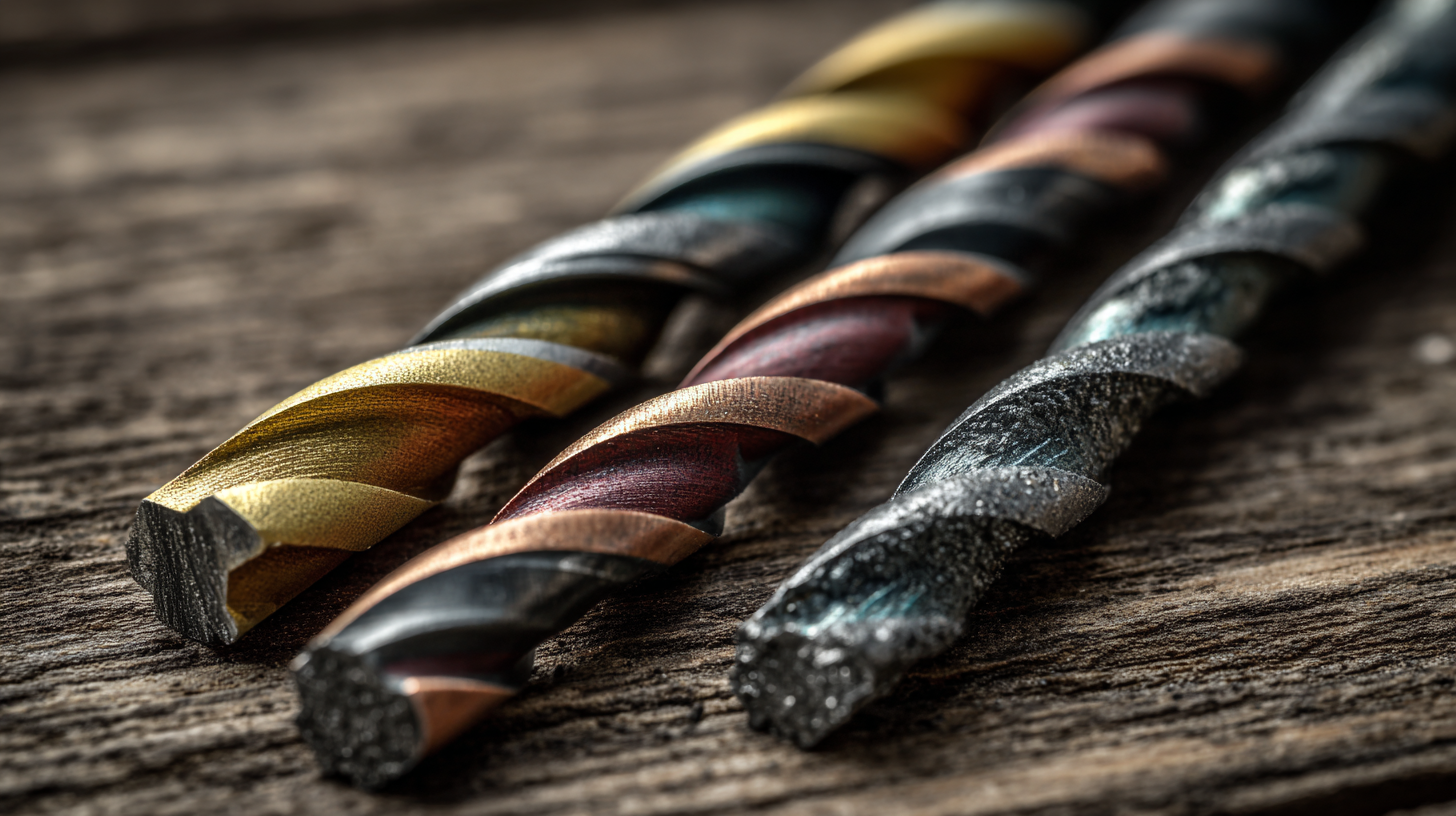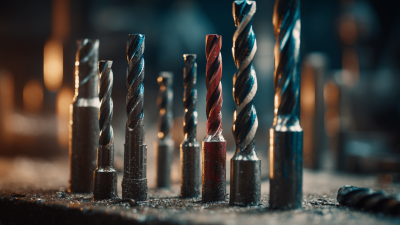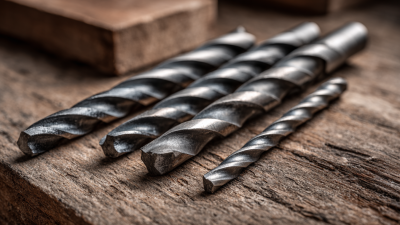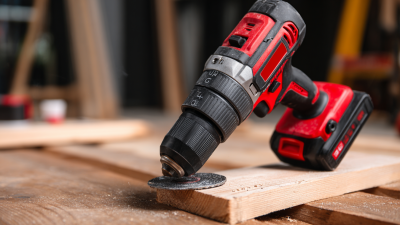FREE SHIPPING ON ALL BUSHNELL PRODUCTS
Leave Your Message
Choosing the right Brickwork Drill Bit for your project needs is essential for achieving optimal results, whether you're a seasoned professional or a DIY enthusiast. With the variety of drill bits available on the market, including those specifically designed for brick, masonry, and concrete, it can be overwhelming to determine which one best suits your specific tasks. An appropriate Brickwork Drill Bit not only ensures efficiency but also prolongs the life of your tools and enhances the quality of your work. In this guide, we will explore the key considerations when selecting a Brickwork Drill Bit, including material types, sizes, and styles that will effectively meet the demands of your project. By understanding these critical factors, you can make an informed decision that will streamline your drilling process and yield exceptional outcomes.
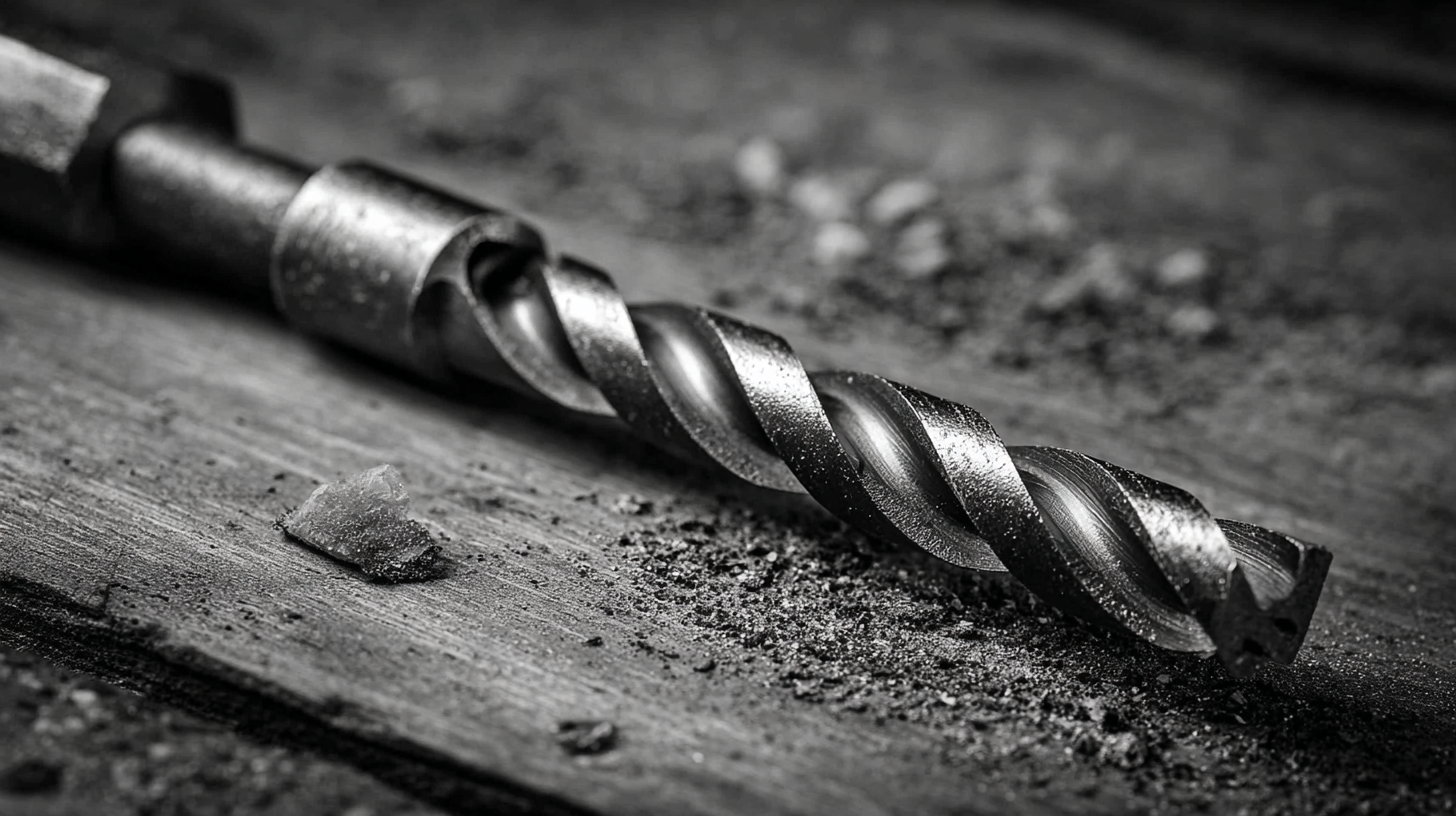
When selecting the appropriate brickwork drill bit for your construction or DIY project, it’s crucial to understand the different types available in the market. The most common types are masonry drill bits, carbide-tipped bits, and diamond-tipped bits, each designed for specific applications. According to a report from the Market Research Future, the global power tools market is projected to grow at a compound annual growth rate (CAGR) of 6.8% from 2021 to 2027, indicating a growing demand for efficient and specialized tools, including drill bits tailored for brickwork.
Masonry drill bits are typically made from high-speed steel and feature a pointed tip that helps penetrate hard surfaces like brick and concrete. Conversely, carbide-tipped bits are designed for increased durability and can handle tougher materials, making them suitable for professional application in heavy-duty projects. A study by Research and Markets highlighted that the increasing trend of urbanization has led to a surge in the construction sector, emphasizing the importance of selecting the right tools to enhance productivity and achieve precision in brickwork drilling tasks. Understanding these distinctions ensures that users can select the most effective drill bit for their specific needs, thereby optimizing both performance and efficiency.
| Type of Drill Bit | Material | Diameter (mm) | Length (mm) | Best Use |
|---|---|---|---|---|
| Masonry Drill Bit | Carbide-tipped | 6 | 150 | Drilling into brick and masonry |
| Diamond Core Bit | Diamond-coated | 10 | 300 | Creating large holes for pipes |
| SDS Drill Bit | Carbide | 8 | 200 | Heavy drilling into brick and concrete |
| Standard Twist Bit | HSS (High-Speed Steel) | 5 | 100 | Light drilling and pilot holes |
| Impact Drill Bit | Carbide | 12 | 220 | Heavy-duty drilling in tough materials |
When selecting the right brickwork drill bit for your projects, several key factors must be taken into consideration. The material composition of the drill bit is crucial, as options typically include tungsten carbide or diamond-coated bits. Tungsten carbide bits provide durability and are suitable for standard brick applications, while diamond-coated bits are designed for harder materials and can drill through tougher surface finishes. According to market research, the global oil and gas drill bit market is expected to grow from $4.52 billion in 2025 to $7.05 billion by 2032, demonstrating a compound annual growth rate (CAGR) of 6.55%. This significant growth emphasizes the increasing demand for specialized drilling tools across various industries, including construction.
Another important aspect to consider is the size and type of the drill bit required for your specific project needs. For example, larger diameter bits are generally used for heavy-duty applications, while smaller bits are suitable for precise work. As the drill bit market continues to evolve, driven by advancements in technology and materials, investing in high-quality bits can lead to improved efficiency and longevity in your projects. Furthermore, the ongoing expansion in markets such as hydraulic lift systems, projected to increase from $12 million in 2022 to $25 million by 2030 with a CAGR of 9.8%, underscores the innovation within the drilling sector and the importance of choosing the right tools tailored to the demands of your projects.
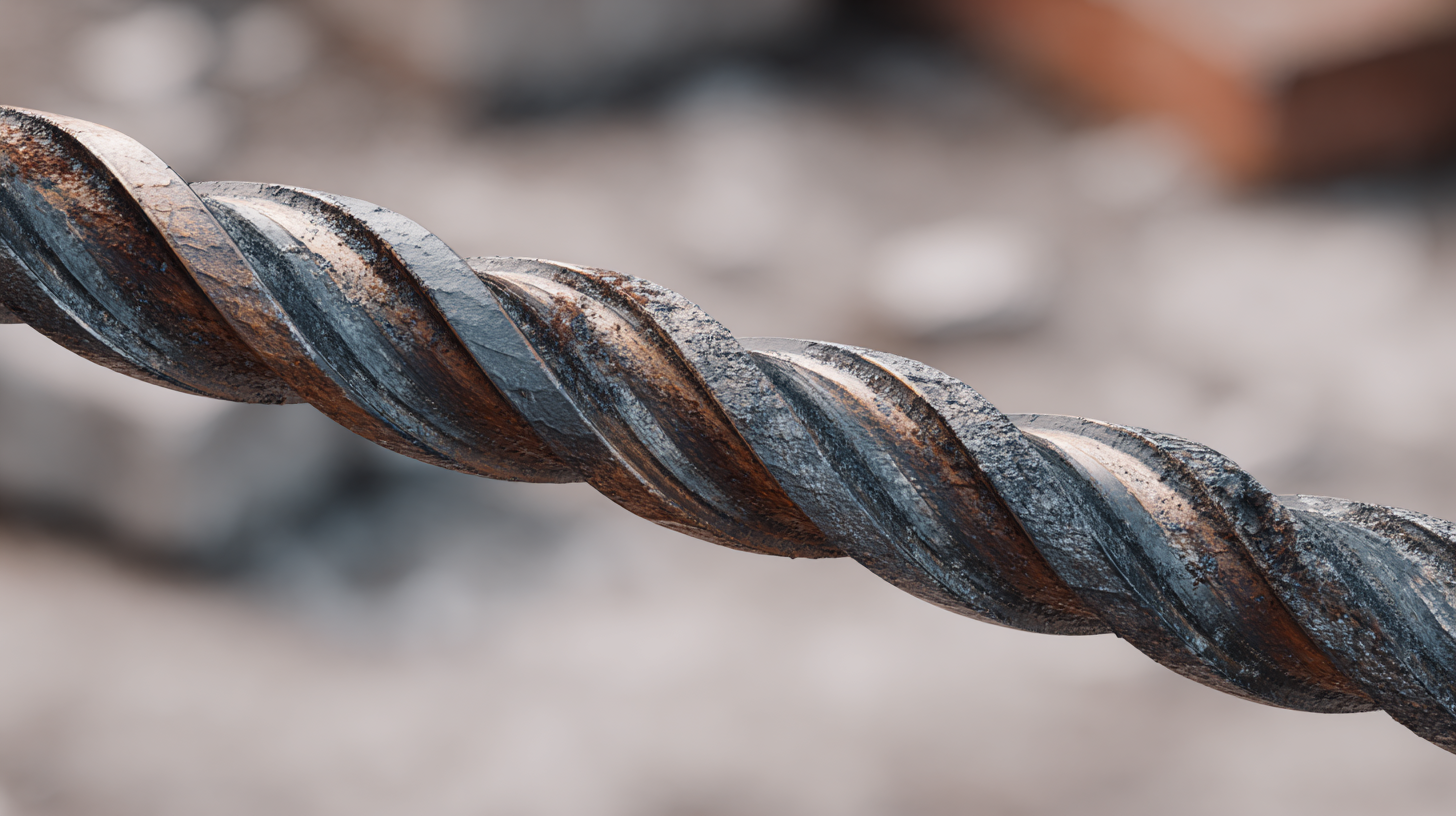
When selecting the right drill bit for brickwork, understanding the materials that make up the drill bits is crucial, particularly when comparing carbide and diamond options. Carbide drill bits are tough and corrosion-resistant, making them suitable for less dense materials or softer bricks. According to a study conducted by the American Society of Concrete Contractors, carbide bits have been found to perform effectively in projects involving standard brick types, with a longevity of up to 3,000 holes depending on the density and abrasiveness of the brick.
On the other hand, diamond drill bits have emerged as the industry standard for more challenging applications. They excel in penetrating harder brick materials, including dense firebrick and concrete-styled products. A report from the Diamond Tool Manufacturers Association highlighted that diamond bits provide a 30% faster drilling speed and significantly reduce wear, lasting up to five times longer than their carbide counterparts in demanding environments. Thus, for contractors looking to maximize efficiency and minimize downtime, opting for diamond drill bits over carbide can be a game-changer in brickwork projects.
When selecting the right drill bit for specific types of brick, it is crucial to understand the distinct characteristics of each brick type. For instance, clay bricks, known for their density, require a specialized masonry drill bit designed with carbide tips that can effectively penetrate tough surfaces. According to the National Institute of Standards and Technology (NIST), using the appropriate drill bit can enhance efficiency by up to 40%, minimizing time spent on each project.
On the other hand, softer materials like concrete bricks require a different approach. Users should opt for bits with a diamond-coated option to ensure smooth and clean holes without chipping or cracking. A recent report by the International Association of Certified Home Inspectors (InterNACHI) highlighted that using suboptimal drill bits on soft bricks can lead to significant structural damage over time, resulting in repair costs that can exceed 30% of the initial project budget. Therefore, when embarking on a project involving brickwork, investing time in choosing the correct drill bit tailored to the specific material is essential for achieving durable results and maintaining structural integrity.
When working with brick and masonry, using the correct drill bits is essential not just for efficiency but also for safety. According to a report by the Occupational Safety and Health Administration (OSHA), improper tool use contributes to approximately 25% of workplace injuries in the construction sector. Therefore, employing proper safety measures and best practices when using brickwork drill bits is paramount. Always wear safety goggles and a dust mask to protect your eyes and lungs from flying debris and harmful dust particles.
Before beginning your project, ensure your drill bit is suitable for the material you'll be working with. A diamond-tipped bit, for instance, is ideal for harder materials, while standard masonry bits work well for general brickwork. It’s critical to use the right RPM settings; for brick, lower speeds (around 600 RPM) are often more effective, as high speeds can cause chips and cracks. Additionally, keep your drill bit cool by periodically pulling it out to clear debris and prevent overheating, a practice that can prolong the life of your tools. Implementing these safety tips and best practices will not only enhance your project outcomes but also safeguard your well-being.
